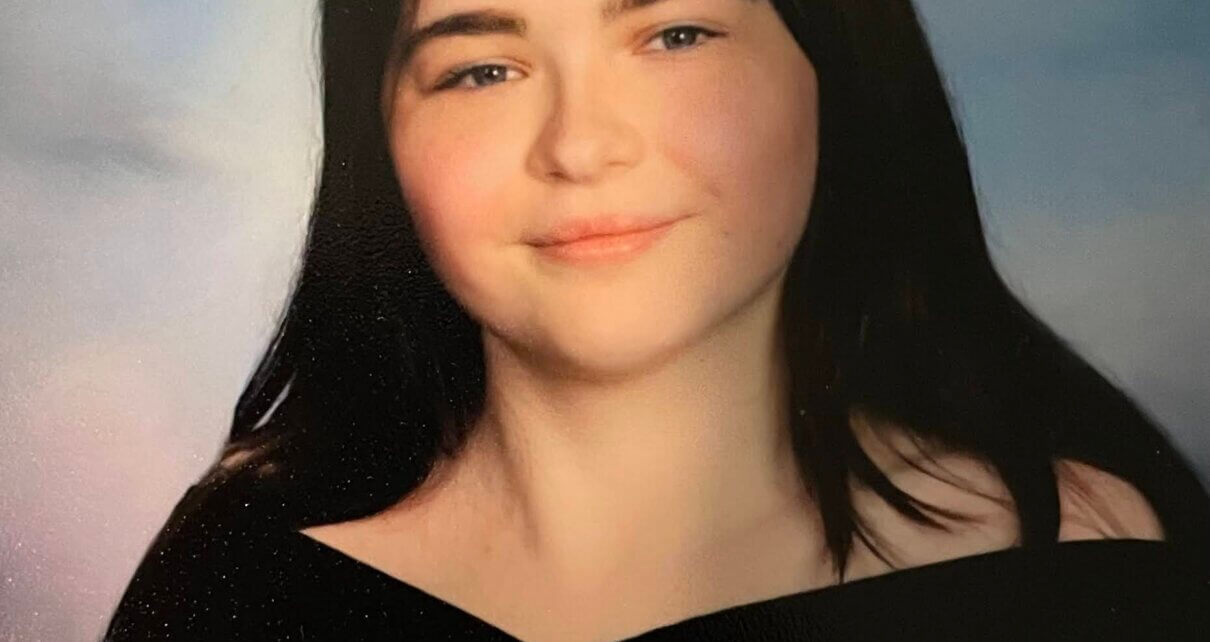Kiley Hubbard, a freshman graphic design student, has led an out-of-the-ordinary life so far—all to finally start her first year at college in person.
Born with both kidneys failing, she was on dialysis from ten months old and for the first five years of her life. After her speech therapist at the time donated her kidney, Kiley successfully underwent a transplant and was able to lead the life of a normal kid. This semester, she started her first year at Monmouth University.
Kiley chose to study at Monmouth to stay close to home and because she loved the school environment. On March 30, 2010 when Kiley received her kidney transplant, her life changed before and after. One of the major impacts on her health more recently is the COVID-19 pandemic.
Before her transplant, while on dialysis, she had to be meticulous about germs and keep on top of her sanitary measures. This practice was even more so come the pandemic.
After dealing with kidneys that would not function from a young age and then having some of her high school years done on Zoom, Kiley is no stranger to having not been around her peers and learning in an in-person environment. Finally, with a sense of normalcy since the pandemic and having had her kidney transplant when she did, Kiley is majoring in graphic design and hopes to pursue a creative career path.
Kiley said, “I think I’ve always planned on going to college. I think especially after COVID, me wanting some sort of normalcy and being so isolated for the past two years, the idea of college became more appealing.”
In high school, Kiley was a part of the Donate Life Club in order to use her experience to express how life-changing organ donation can be. In the future, she hopes to continue her advocacy for organ donation and hopes to continue this in some capacity at Monmouth.
Kiley said, “Through my time in the Donate Life Club we were able to advocate for organ donation and educate faculty and my peers about organ donation through various activities.” One example Kiley used was donating books to local elementary schools within the district that taught kids about organ donation in a way that fit them and is more digestible.
For other students at Monmouth who might be struggling with their health, and in turn struggling to maintain a good academic record, Kiley said, “Your well-being always comes first in all of it. You have to make sure you are healthy and able to do the work before putting academics first.”
There are many resources on campus to help those struggling with underlying health issues. Kathy Maloney, the Director of Health Services, stated, “Monmouth University Health Services supports students with underlying health conditions by offering preventive services such as COVID and influenza vaccination in addition to screening services and medical intervention for infectious disease.”
Organ donation saved Kiley’s life, and now she is able to be among her peers and start her first semester of college. Without certain influences in her life, she wouldn’t be where she is today. Kiley said that some of her biggest influences are her family and she is thankful for the opportunities she has gotten.
So far, Kiley has really enjoyed her first few weeks at Monmouth. She enjoys her art classes and is looking forward to progressing in her curriculum. She is also looking forward to getting involved on campus, meeting new people, and hopes to continue her advocacy for organ donation.
“Organ donation really saved my life,“ Kiley said. “With the organ donation, I didn’t have to be on dialysis anymore. I lived life normally to an extent, but it allowed me to do so many things I wasn’t able to do before. I would encourage anyone to become an organ donor. You can save so many people by doing so.”



